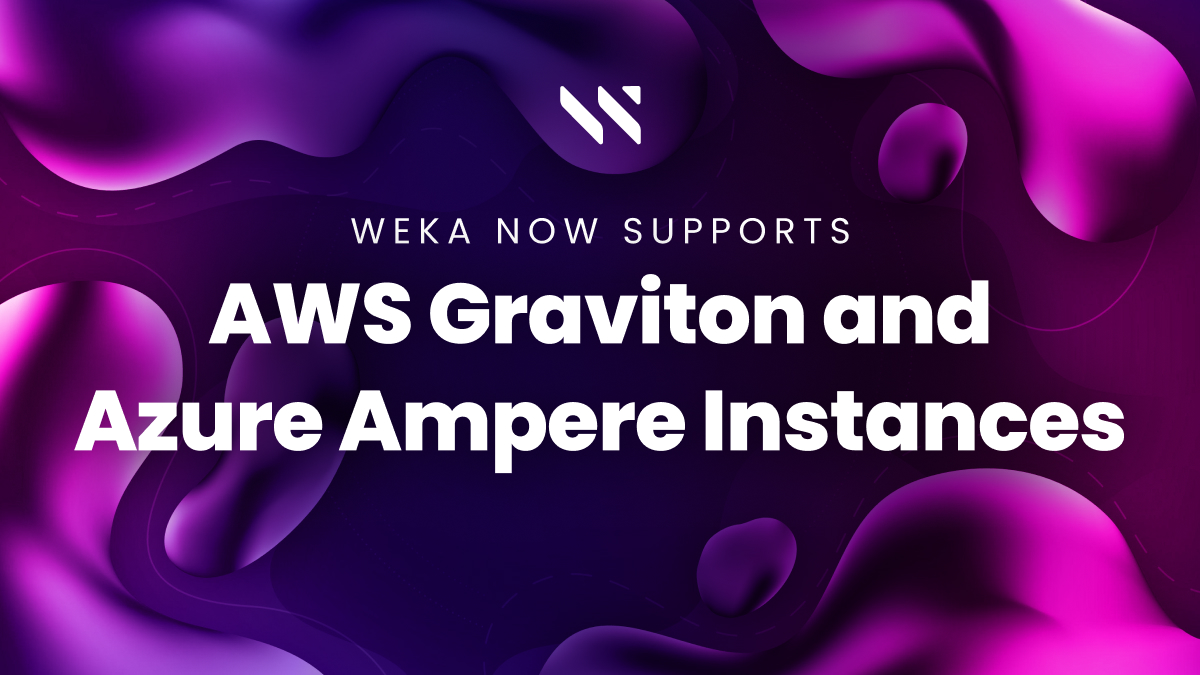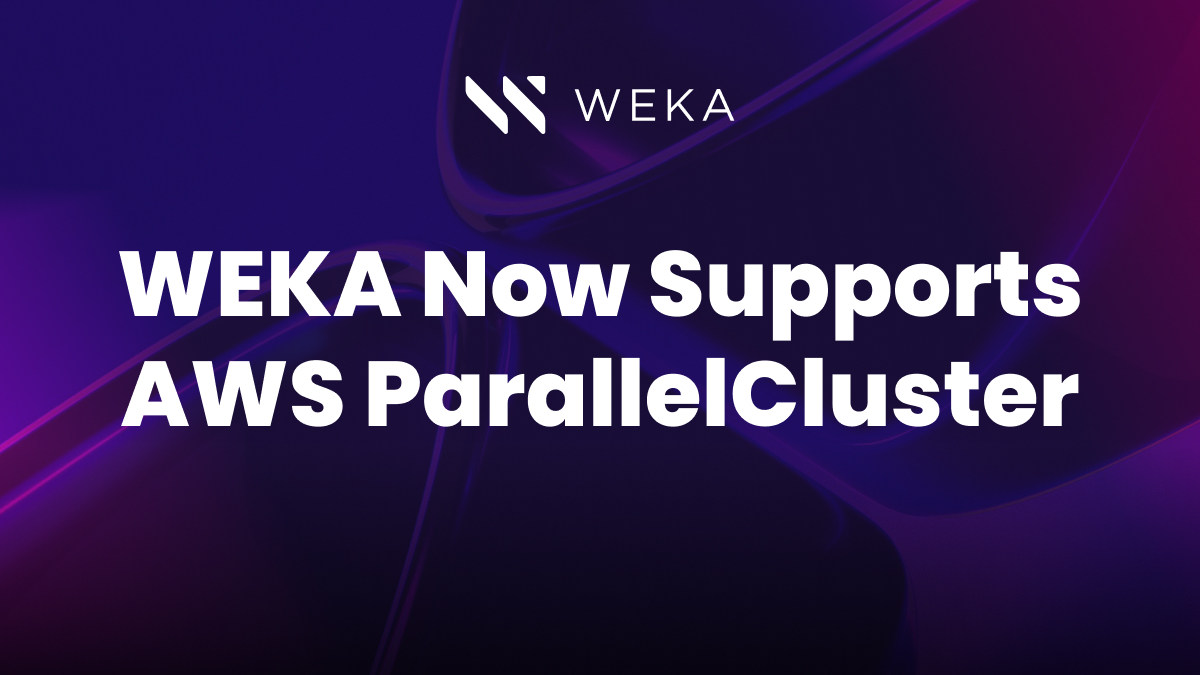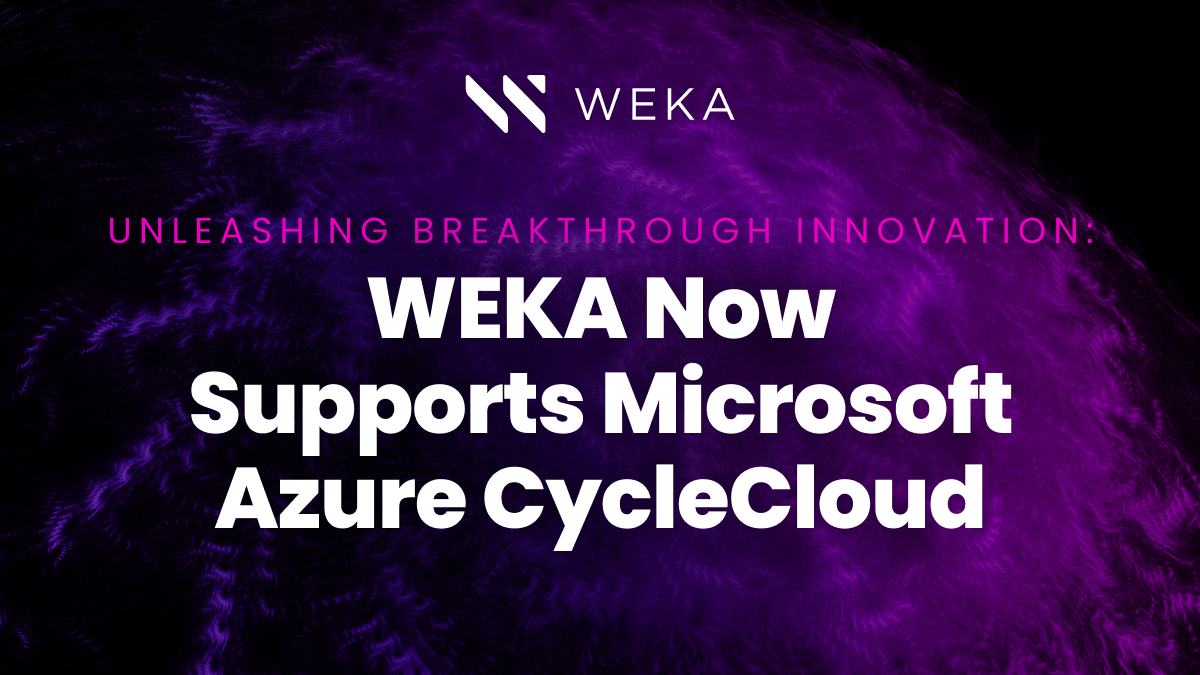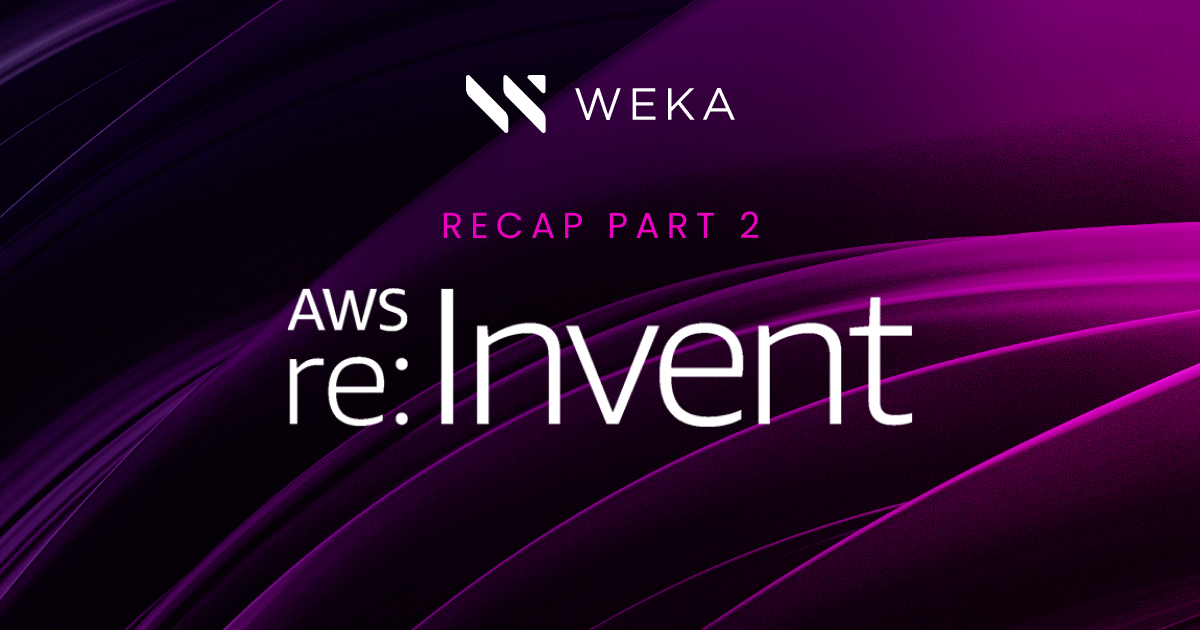WEKA Now Supports AWS Graviton and Azure Ampere Instances

WEKA is pleased to announce POSIX client support for ARM-based virtual machines in the cloud using either AWS Graviton or Azure Ampere VMs. Organizations building AI, GenAI, HPC, and other performance-intensive workloads in the cloud can now easily adopt ARM-based compute architectures using the WEKA Data Platform. The combination of ARM compute and the WEKA Data Platform makes an unbeatable combination for customers looking for the best price-performance and most energy efficiency possible for next-generation AI and HPC applications. A full list of supported WEKA clients can be found here for Amazon EC2 and here for Azure VMs.
Industry Background
The wave of innovation unleashed by generative AI is defined by scarcity. Access to GPUs to drive LLM model training and tuning, access to the high-performance infrastructure to support the GPU farms, and even sufficient energy to power next-generation data centers are all at a premium. Long wait times, excessive term commitments, and high prices are common stories amongst leading AI organizations looking for the latest GPU accelerators – enterprises and start-ups alike. The new NVIDIA Blackwell architecture is expected to add to this intense competition for access. The GPU race is further intensifying as modern GPU Cloud and GPU-as-a-Service companies quickly add data center capacity that’s optimized for HPC and AI workloads, filling crucial performance gaps the traditional hyperscalers have been slow to address. The energy demands from this investment in accelerated infrastructure to drive AI is expected to consume as much as 25% of electricity demand in the United States by 2030. Gartner predicts that “By 2025, without AI sustainability practices, AI will consume more energy than the human workforce, significantly offsetting carbon-zero gains.”
Why ARM Matters for AI and HPC
The path forward relies on a data center infrastructure that is optimized to run on minimal electrical power, alleviates the current GPU supply shortage, and enables further cost reduction through scale. This is the promise of ARM (Advanced RISC Machines). ARM chips were first introduced in 1994, and are today used in 99% of the world’s smartphones and mobile devices. The long history of use in mobile devices means the ARM chips available today are ideal for low power consumption, low thermal output, and extremely high density – the same requirements now driving a reinvention of modern HPC and AI data centers.
Historically, shifting from an x86-based architecture requires a refactoring of software and applications. The time and complexity associated with this transition have historically kept enterprises from making the switch. However, the added pressure to build GPU-enabled infrastructure that is step-function more efficient and affordable is driving the transition led by the hyperscale cloud providers. Every major cloud provider now offers ARM-based processors to their customers through AWS Graviton (available), Azure Ampere VMs (available), Google Axion Processors (in preview), and Oracle Cloud Ampere AI Compute (available). In the broader enterprise space, more applications are supported in ARM environments, and many providers now offer migration services, making it easier to adopt ARM than ever.
AWS Graviton and The Rise of ARM for Cloud-Based Workloads
With the 2018 launch of AWS Graviton, Amazon was the early leader in offering ARM-enabled cloud instances, originally designed for scale-out applications like web servers, caching fleets, and microservices environments. According to AWS, Graviton instances offer the best-price performance for a broad range of workloads, use to up 60% less energy, and cost up to 20% less than comparable x-86-based instances. The price-performance and energy efficiency benefits offered by Graviton have led to an explosion in the number of instance types offered by AWS. Today, AWS offers more than 150 different EC2 instance types powered by Graviton processors across general purpose, compute, memory, network, and storage optimized as well instances for accelerated compute and HPC applications. Now in it’s 4th generation, Graviton “provides up to 30% better compute performance, 50% more cores, and 75% more memory bandwidth than current generation Graviton3 processors, delivering the best price performance and energy efficiency for a broad range of workloads running on Amazon EC2.” Today all major cloud providers now offer ARM-based virtual machines to their customers. It’s estimated that ARM-powered VMs make up 7% of cloud computing instances today (up from 2% in 2019).
WEKA Perspective
The need for better resource efficiency isn’t limited to compute. Storing data consumes on average 300 KWhr of energy per TB of data or roughly 15% of the total energy requirement in the data center. We built the WEKA Data Platform as an answer to the resource inefficiencies that have become inherent in today’s data centers – both on-premises and in the cloud. Built in AWS, and now supported in all major clouds, and commodity server hardware on-premises, the WEKA software solution enables massive performance at any scale with resource efficiency not possible using traditional approaches. Today, thousands of organizations use the WEKA Data Platform to reduce storage costs by 50% or more, increase GPU and data center resource utilization, and accelerate their performance-intensive workflows in the cloud by 10x or more, accelerate workflows from months to hours, and save 260 tons of CO2e per PB. Customers in every industry use WEKA to accelerate their workflows, reduce their energy footprint, and save money in the cloud including 23 and Me, Genomics England, and Atomwise in life sciences, Stability AI, Synthesia, Midjourney, and Adept AI for generative AI model development, Parliament, Preymaker, and Untold Studios for VFX and media production workflows, and many more.
WEKA Clients Now Support AWS Graviton and Azure Ampere Instances
WEKA is proud to work with technology partners and customers alike as we collectively build faster, more resource-efficient, and more sustainable infrastructure for AI and HPC workloads. To this end, we’re adding support for WEKA POSIX clients that run on AWS Graviton and Azure Ampere virtual machines. The combination of ARM for compute and WEKA Data Platform makes an unbeatable combination for customers looking for the best price-performance and most energy efficiency possible for next-generation HPC and AI applications. A full list of supported WEKA clients can be found here for Amazon EC2 and here for Azure VMs.





